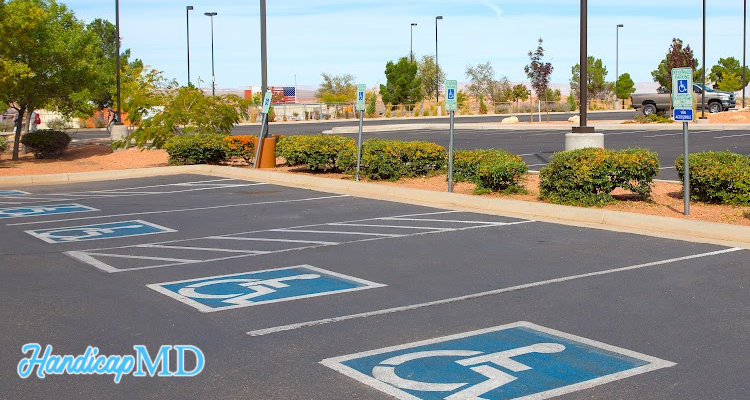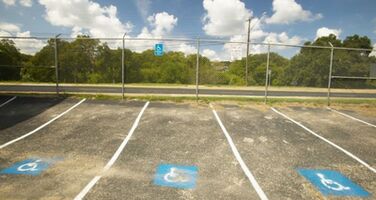
Myths vs. Facts: Debunking Common Misconceptions about Handicap Placards in Texas
Introduction
Disability passes play a crucial role in facilitating accessible parking for individuals with disabilities. However, there are several myths and misconceptions surrounding these permits. In this article, we aim to debunk common misconceptions and provide accurate information about handicap placards in Texas. Whether you're a driver with a disability or someone seeking to understand the regulations, this article will clarify the facts and dispel the myths.
Benefits of Handicap Placards
It offers several benefits to individuals with disabilities. They provide convenient access to designated accessible parking spaces, ensuring that individuals can park closer to their destinations. This accessibility promotes independence, reduces physical strain, and improves overall mobility. Moreover, handicap permits enable people with disabilities to participate more fully in community activities and have equal opportunities for transportation.
Eligibility Criteria for Handicap Placards
Individuals must meet specific eligibility criteria. The Texas Department of Motor Vehicles (DMV) outlines these criteria to ensure that permits are allocated to those who genuinely require them. Eligibility is based on various factors, including mobility limitations, use of assistive devices, and medical certifications from licensed healthcare professionals. It is essential to understand these criteria to determine if you or someone you know qualifies.
Application Process
Obtaining a permit in Texas involves a straightforward application process. Applicants need to complete the appropriate form, which is available on the Texas DMV website. The form requires relevant personal and medical information, including the applicant's name, address, disability details, and the medical certifying authority. After completing the form, it can be submitted to the local county tax office or mailed to the address specified on the form. It's crucial to follow the instructions carefully to ensure a smooth application process.
Renewing and Replacing Handicap Placards
In Texas, permits are valid for four years, and the renewal process can be completed online or by mail. Additionally, if a permit is lost, stolen, or damaged, it can be replaced by submitting a request to the local county tax office. Being aware of the renewal and replacement procedures ensures that individuals with disabilities can maintain uninterrupted access to accessible parking spaces.
Proper Display and Usage of Handicap Placards
Disability tags should be hung on the rearview mirror when the vehicle is parked in a designated accessible parking space. It is illegal to display it while the vehicle is in motion. Additionally, it's important to remember that these are issued to individuals and not vehicles. Therefore, they can be used in any vehicle the authorized holder is driving or traveling in, regardless of ownership.
Misconception: Disability Placards are Easy to Obtain
Many people believe that obtaining a permit is a simple and lenient process. However, this is a common misconception. The Texas DMV has strict eligibility criteria in place to ensure that passes are allocated only to individuals who genuinely need them. The application process requires proper documentation and verification from licensed healthcare professionals. By dispelling this myth, we emphasize the importance of maintaining integrity and fairness in the allocation of disability tags.
Myth: Disability Placards are Only for Wheelchair Users
Contrary to popular belief, disability tags are not exclusively for individuals who use wheelchairs. It caters to a wide range of disabilities, including but not limited to mobility impairments, heart conditions, respiratory disorders, and visual impairments. The eligibility criteria encompass various disabilities, ensuring that individuals with diverse needs can benefit from accessible parking spaces. It is crucial to recognize the inclusivity of these permits and understand that disabilities come in many forms.
Fact: Handicap Placards Are Not Transferable
Handicap placards are issued to individuals and are non-transferable. This means that it should not be used by anyone other than the designated person with the disability. It is illegal to lend, borrow, or use someone else's pass, even if that person has a disability. The purpose is to provide equal access to individuals with disabilities and ensure that accessible parking spaces are available when needed. Respect for this rule is essential for maintaining fairness and accessibility.
Myth: Disability Placards Allow Unlimited Parking
A common misconception is that it grants unlimited parking privileges. However, this is not the case. These tags provide access to designated accessible parking spaces, but they do not exempt the authorized holder from obeying other parking regulations. Designated holders must still adhere to parking restrictions, such as time limits and parking fees, unless specific exemptions are granted by local authorities. It's important to recognize that these passes provide accessibility but not exemption from general parking regulations.
Fact: Handicap Placard Abuse is a Serious Offense
Abusing permits by using them fraudulently or without legitimate authorization is a serious offense in TX. Law enforcement agencies actively monitor and enforce handicap parking regulations to ensure fair and equal access to parking spaces for individuals with disabilities. Offenders can face fines, penalties, and even the revocation. By debunking the myth that abuse goes unnoticed or unpunished, we emphasize the significance of upholding the integrity of these permits and respecting the needs of individuals with disabilities.
Myth: Disability Placards are Valid in all States
Some individuals mistakenly believe that it is valid in all states. However, these regulations vary from state to state. While many states recognize out-of-state permits, it's essential to familiarize yourself with the specific regulations of each state you visit. Reciprocity agreements exist between certain states, enabling the recognition of out-of-state permits. Nonetheless, it's always wise to research and comply with the regulations of the state you are visiting to avoid any inconvenience or legal complications.
Fact: Handicap Placard Violations Have Consequences
Violating these regulations can result in severe consequences. Law enforcement agencies diligently enforce these regulations and penalize those who violate them. Common violations include improper use or display, using an expired or revoked pass, or using someone else's. Violators may face fines, loss of parking privileges, and legal penalties. By highlighting the repercussions of violating these regulations, we aim to promote compliance and raise awareness about the importance of respecting accessible parking spaces.
Myth: Disability Placards are Only for Permanent Disabilities
A prevailing myth is that they are only for individuals with permanent disabilities. However, this is not accurate. Disability passes are also available for individuals with temporary disabilities, such as those recovering from surgery or experiencing injuries that impair their mobility. Temporary ones are valid for a specified period, depending on the medical certification. Recognizing the eligibility of individuals with temporary disabilities ensures that their mobility needs are met during their recovery or rehabilitation phases.
Fact: Temporary Disabilities Qualify for Handicap Placards
TX recognizes the needs of individuals with temporary disabilities by offering passes for temporary use. These are issued based on medical certification from licensed healthcare professionals. Individuals with temporary disabilities can benefit from the convenience and accessibility provided during their recovery or rehabilitation period. By clarifying this fact, we ensure that individuals with temporary disabilities are aware of the support available to them and encourage them to explore the option of obtaining a temporary pass if needed.
FAQ 1: What are the benefits of having a disability pass in Texas?
Convenient access to designated accessible parking spaces, reduced physical strain, increased independence, and improved mobility. It enables individuals with disabilities to participate more fully in community activities and have equal opportunities for transportation.
FAQ 2: How can I apply for a disability pass in Texas?
To apply for a Texas handicap placard, you need to complete the appropriate application form available on the Texas DMV website. The form requires personal and medical information, including the applicant's name, address, disability details, and the medical certifying authority. After completing the form, submit it to the local county tax office or mail it to the specified address.
FAQ 3: Can I renew my disability pass online?
Yes, you can renew online in TX. The Texas DMV provides an online renewal option for the convenience of authorized holders. However, it's important to ensure that you meet the renewal requirements and follow the instructions provided to successfully renew.
FAQ 4: What should I do if my disability pass is lost or stolen?
If your disability pass is lost, stolen, or damaged, you should contact your local county tax office to request a replacement. They will guide you through the process of replacing to ensure you can continue benefiting from accessible parking spaces.
FAQ 5: Can I lend my disability pass to someone else?
No, lending it to someone else is not permitted. These are issued to individuals and are non-transferable. It is illegal to use someone else's permit, even if that person has a disability. These are intended to provide equal access to individuals with disabilities and must be used only by the designated person.
FAQ 6: Are disability passes valid in private parking lots?
They are generally valid in private parking lots, as they provide access to designated accessible parking spaces. However, it's important to check the specific rules and regulations of each private parking lot, as they may have their own guidelines.
Conclusion
Dispelling common myths and misconceptions about handicap placards in Texas is essential for promoting accurate information and understanding. By addressing these misconceptions and presenting the facts, we aim to provide clarity and ensure that individuals with disabilities and the general public have a comprehensive understanding of permits. Remember, it serves a vital purpose in creating accessible environments and supporting the needs of individuals with disabilities.
.png)






